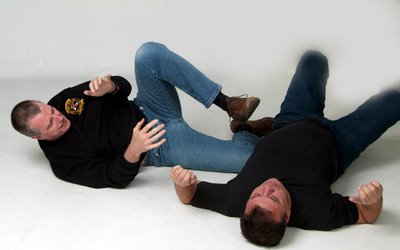
The excellent post:
The big four that I believe must be in any practical and modern fighting/survival system. The guidelines I'd like to use.
Strategy Training: This is an overall plan. Big picture. This training can be done in a classroom, in a lecture format. 'Today we are talking about the defeating the mugger.' 'The laws say...' 'He will statistically attack you by...'
Tactical (and practical) Training: These are the general tactics that seem to cross-over into so many applications, such as ...working on a pistol quick draw, slashing a knife, or palm-striking a heavy bag. You might call this basic training.
Situational Training: This requires more study. What are the situations you will be in. Where? This is crisis rehearsal in replications of scenarios. Who are you? Where do you think you will be? What will you need to make through? You might call this the start of advanced training.
Positional Training: This is pinpoint right down to it. The general tactics may well work here, but where precisely are you and the opponent? This is the real fine tuning of tactics as needed. The finite situation. Like...bottom-side ground and his left leg is out. Arm Wrap trap or your knife hand/arm warp trap of his empty hand. His left hand is on your throat and you are up against a wall. Sometimes, solutions relate to finite positioning.
Tink about these terms for a minute and the progression from macro to micro. When you oversee the military, the police and/or civilians, this is volumes of information. "

No comments:
Post a Comment